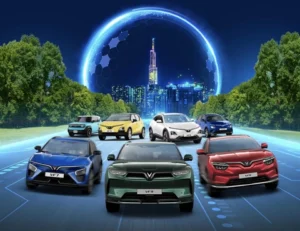The finance – insurance – banking industry is promoting digital transformation to improve experience, expand access and build trust with Vietnamese customers.
The financial, insurance and banking services sector plays an important role in Vietnam’s economy, accounting for about 4.9% of GDP. Experts say that for Vietnam to continue to grow strongly, the financial sector needs to accelerate its “digital transformation” to better serve customers.
The information was announced by experts at the “Asian Banking & Finance and Insurance Asia Summit” recently held in Ho Chi Minh City. Digital banking and digital insurance are reshaping the global financial landscape, and Vietnam is no exception. With 32 million active e-wallets, digital banking and other related financial services such as insurance and financial consulting are gradually becoming essential tools to expand financial access for people.
Mr. Nguyen Hong Son, General Director of Chubb Life Vietnam, said that the biggest challenge in the insurance industry is building trust, which is related to sensitive and highly personal situations in life. “We apply technology such as blockchain and AI to improve data integration while still ensuring the privacy of each individual,” Mr. Son said.
However, experts warn that a large segment of Vietnam’s population – estimated at 60% to 70% – remains underserved by formal financial services.
Mr. Santhosh Mahendiran, Chief Data and Analytics Officer of Techcombank, emphasized that the bank is pursuing a bold digital transformation strategy with a focus on innovation, technology and people. “If you want to reach the bottom of the pyramid, you have to invest in digitalization, data and people,” Mr. Santhosh Mahendiran affirmed.
Financial institutions are also moving towards hyper-personalized services, moving from simple automated solutions to intelligent, AI-powered interactive experiences. Last year, banks spent a total of $31.3 billion on Gen AI solutions. This figure is forecast to reach $40 billion in 2025 and exceed $81 billion by 2028.
















